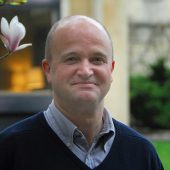
Professor Ralph Schroeder
Senior Research Fellow
Ralph Schroeder has interests in shared virtual environments and the sociology of science and technology. His current research is related to digital media and populism, climate change online, AI and social theory, and the internet in China and India.





